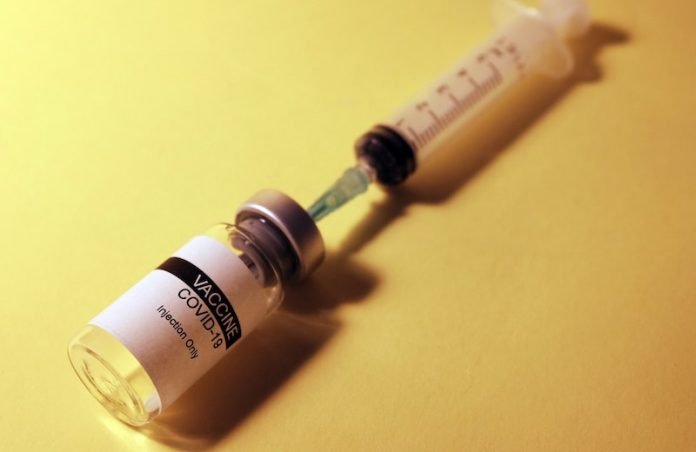
The first generation of COVID-19 vaccines have been highly effective, but also have limitations: their efficacy can wane without a booster shot, and they may be less effective against some variants.
In a new study from The Wistar Institute, researchers developed a more targeted vaccine that, in animal studies, shows stronger, broader, and more durable protection in a single, low dose.
The vaccine combines three technologies—immune focusing, self-assembling nanoparticles, and DNA delivery—into a single platform for the first time.
In addition to its other advantages, the vaccine could be stored at room temperature, making it potentially easier to transport to remote or developing locations than existing mRNA vaccines, which require specialized cold storage.
Existing vaccines include an unmodifided receptor binding domain of SARS-CoV-2 spike protein.
The new vaccine includes a rationally engineered receptor binding domain using computational and structure-based design methodologies.
The energinered receptor binding domain blocks ‘immune distracting’ sites and can therefore elicit stronger levels of protective, neutralizing antibodies.
Researchers then used naturally self-assembling proteins to form nanoparticles which display these highly engineered immunogens.
By arranging themselves into structures that resemble an actual virus, the nanoparticles are more easily recognized by the immune system and transported to the germinal centers, where they activate B cells which produce protective antibodies.
Using nucleic acid vaccine delivery technology similar to mRNA, the nanoparticle vaccine is encoded in DNA and delivered into cells thereby giving genetic instructions for the body to build the immunogen internally.
This is an advance over traditional vaccines that must be manufactured in specialized factories through complex vaccine production processes.
In contrast to other vaccines, the team noted that one advantage of the DNA platform is that it doesn’t require refrigeration and it can also be quickly reformulated to target new variants.
In lab experiments, the researchers found that the DNA-delivered immune-focused nanoparticle vaccine produced much higher levels of neutralizing antibodies than the vaccine that wasn’t immune-focused.
The ultimate test for SARS-CoV-2 vaccine candidates is protection from death in SARS-CoV-2 challenge experiments.
The researchers found that in a lethal challenge model 100% of mice who received the immune-focused nanoparticle vaccine were protected from death with a single low dose.
Most mice who received the standard, non-immune-focused vaccine died within 10 days of the challenge.
Even without being updated, the immune-focused vaccine showed a comparable level of antibody production to Delta and other variants.
Studies on the Omicron variant are underway.
The researchers say the vaccine could provide a needed step forward to improve protection against COVID-19.
If you care about COVID, please read studies that antibodies from COVID-19 vaccination almost 3 times higher than from infection, and current COVID-19 vaccines cannot effectively prevent omicron infection.
For more information about Covid, please see recent studies about how afraid of COVID variants should we be, and results showing this new COVID-19 vaccine booster can effectively prevent disease.
The study is published in Cell Reports, and was conducted by Daniel Kulp et al.
Copyright © 2022 Knowridge Science Report. All rights reserved.




